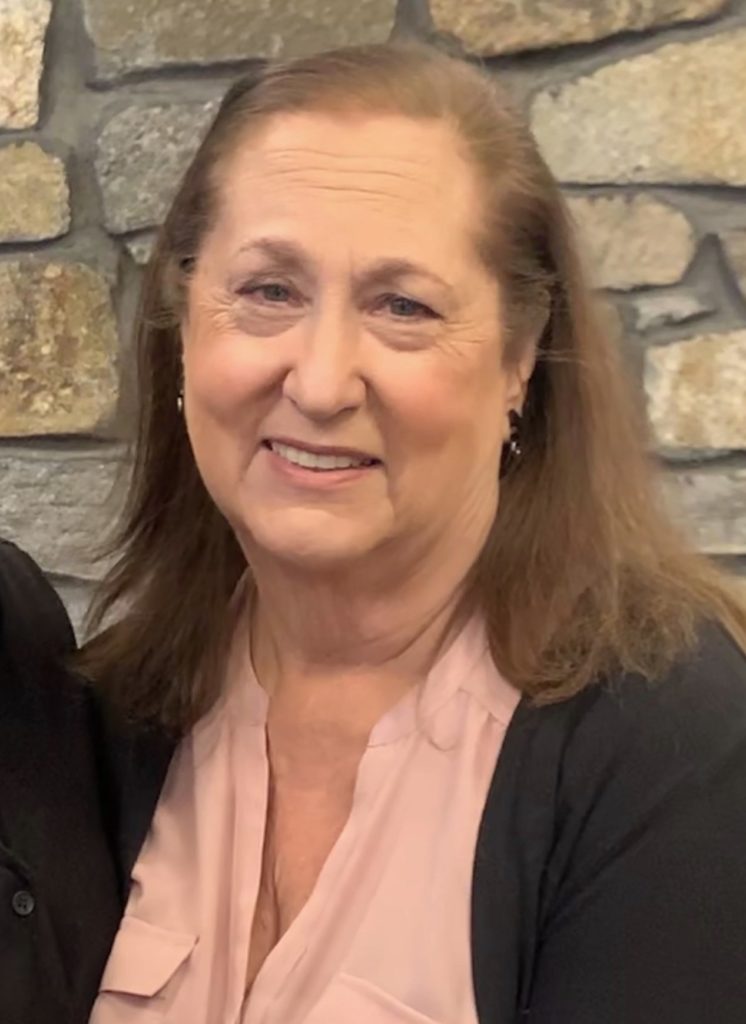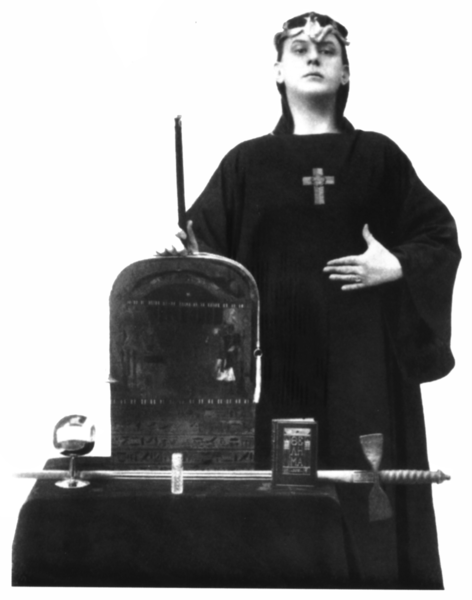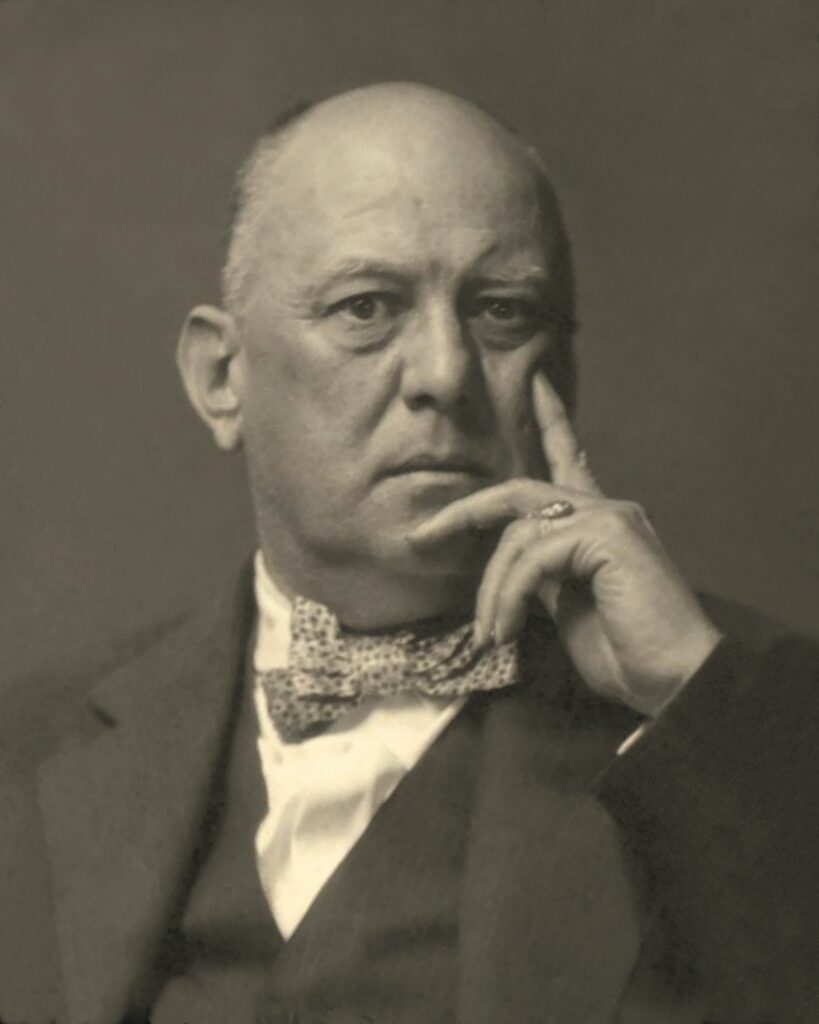A historical figure who still attracts attention is Aleister Crowley. As Eileen Garrett knew him personally I thought some of you may be interested in her “take” on him. Taken from one of her books, Sense and Nonsense of Prophecy published by her own Creative Age Press in 1950, she wrote:
“One cannot speak of cults and secret societies without recalling Aleister Crowley, whose studio was in Chelsea, and his extraordinary adventures in the fields of black magic. I met him when I first arrived in London, and was repelled then by the arrogance of his manner. His efforts at ‘hypnosis’ at our first meeting were negative as far as I was concerned. He hinted that I might have a profitable future as his ‘pythoness,’ but with my hard-headed peasant ancestry, I did not quite believe that this would be my special calling. Our paths crossed briefly through the years. In his heyday he attracted a young as well as a glamorous and sophisticated crowd to his Black Masses. Although he was tall, broad-shouldered, and rather heavy of build, I never found him attractive or magnetic as so many others did. When I last saw him in London in 1939, he looked shrunken and tired and whatever powers he had in the past seemed lost. But he was a great showman and his sense of Grand Guignol may have overwhelmed the uninitiated. Legends of his satanic powers must have pleased him immensely, for he never did anything to minimize the talk about himself.
As a young man he had a wide range of occupations to choose from, for there was no doubt that he had great talent especially as a poet. He was responsible, with MacGregor Mathers and W.B. Yeats, for the Hermetic Order of the Golden Dawn, a society which was alleged to be the guardian of occult knowledge. It was after he quarreled with Mathers and Yeats that Crowley started his press and his own group in opposition.
The wickedest man in the world, by which title he often referred to himself, went out of his way to be misunderstood. His techniques of sexual magic to bring about states of contemplation for self-analysis brought more heartaches than wisdom to a good many. At one time he founded a society, the Order of the Oriental Templars, a group which was also alleged to be the sanctuary of the gnosis; and at the same time he referred to himself as Baphomet, a title which, since his death, has been taken up by another cult.
Aleister Crowley was not unknown in America. I believe in World War 1 he visited the country to spread propaganda for Germany. It was after this that he returned to London, where he was not very popular, as might well have been expected, to raise funds for his Arcane School in Sicily. I remember at the time there were those in the literary and New Thought world who expressed themselves emphatically on both sides. An astonishing phenomenon of his time, Crowley had no hesitation in describing himself as ‘the world’s greatest philosopher.’
When I last saw him I also noticed that gone, too, were the pleasant perfumes which were part of his personality. I believe that he used musk rather heavily—he believed that women were affected by this particular perfume.
There was a period in his life when he might have achieved a very different reputation from that of a magician. He had been interested in mountain climbing. At one time he set out with great enthusiasm to scale some of the peaks of the Himalayas, but, unhappily, one of the members of the party was killed and much of the blame was put upon Crowley. He did nothing at that time to spare himself, and from then on began to gather a rather ‘peculiar’ reputation to put it mildly. I believe that it amused him to be different, and when he laughed at religion, politics and sexual morality, I think he did it in order to give the impression that he had achieved mastery over all evil. If this were so, he was rather successful, for there were many people who felt he was vile and blasphemous, and innumerable wicked stories were circulated about him. I do not know of anything actually illegal that he did, but his opinions and personal habits shocked those who did not know him and, at the same time, drew to his side many who believed that these things were not important.
Crowley died in Brighton in 1948; one or two followers who had remained faithful to the end were on hand to put red roses on his coffin. It was reported that his death was characteristic: he cursed the doctor and raged: ‘You will die before me.’ That same evening, the doctor collapsed and died of a heart attack! Crowley departed his life the following day.
I do not know if it was true that Aleister Crowley knew Gurdjieff, Ouspensky and Orage well. He claimed to, but always with an air of one who had long since passed over those philosophers and was now upon his own special road. There were hidden depths of intense antagonism within the man—antagonism toward good—yet I never felt that he was really bad, and I like to think that the world will one day discover in him an excellent poet and an able scholar and that thus he will be regarded, rather than as a master magician of the black arts. There is a fascinating book to be done on the study of such men as Crowley—men who were strong enough to overcome all the alleged evil which they certainly enjoyed stirring up around them. They have their place in the history of occultism.”
It continually amazes me the circles that Garrett swam in. I wonder what Crowley saw in her as to describe her as a “Pythoness” but then I have heard her described in many a diverse fashion.


